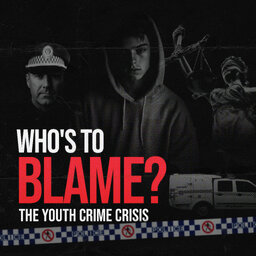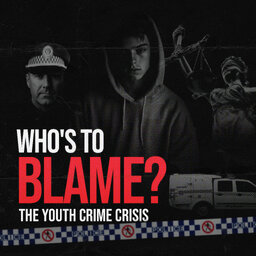5.Picking Up The Pieces
In this episode, we dive into what life looks like for survivors of youth crime as they try to move forward through their grief. We also chat with Professor Selena Bartlett, a neuroscientist at QUT, about the developing minds of young offenders and her thoughts on who's really to blame for the current crisis.
 Who's To Blame?
Who's To Blame?


